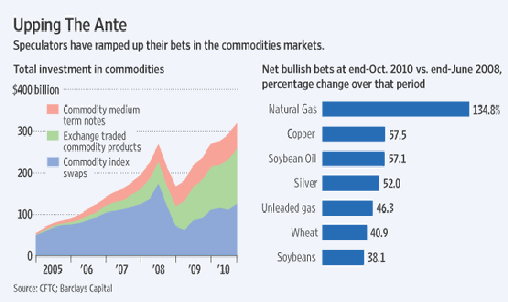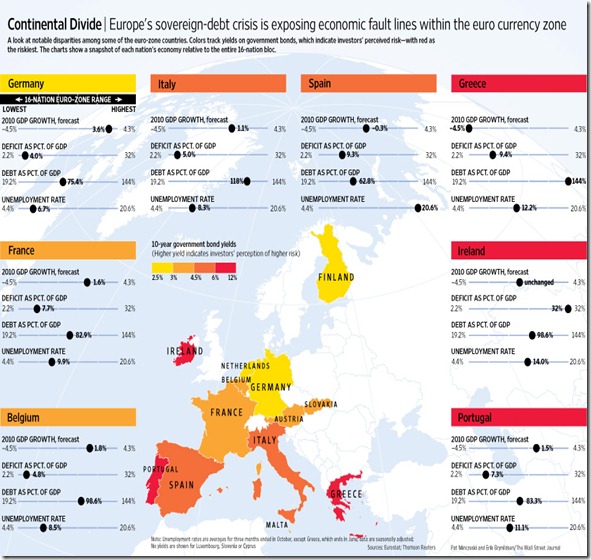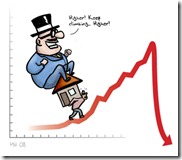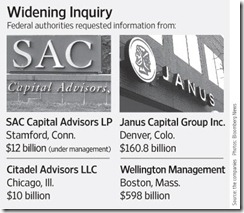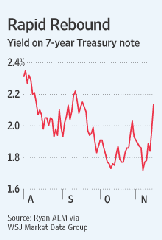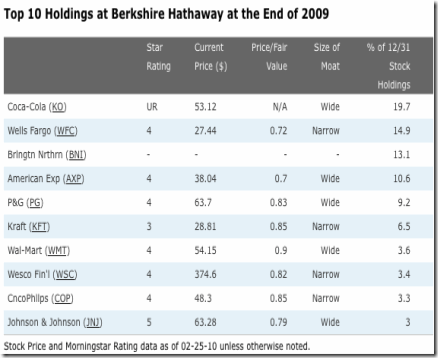
Here’s a blog I wrote this past summer and had it approved to be published but thought it needed a bit more polishing. If you're of a certain senior age there are some in the financial business think you need a free meal and incentives to do business with them. If you enjoy being thought of as a ‘fool’ attend one of their dinner seminars and discover how the pro’s manipulate suckers.
I used to get one or two a week but for the longest time I haven't gotten a dinner invitation to an investment seminar. The last few days I received three, from folks I never heard of but all wanting to break bread with me and join them for convivial conversation and sharing of ideas. One even offered me a gas card for simply showing up and filling my face at the hot buffet. When was the last time a friend said, ‘Come over for a bite and I’ll pay for your gas?’ - it’s like being invited to the Oscars and getting one of those Gucci bags loaded with free goodies!
Let me tell you what I got in the mail. The first invite is from Kim and Al, according to their mailing these folks have been advising both retirees and pre-retirees for years (it doesn’t say how many years or how they’ve done, just that they’ve been doing it for years). This was to help us aging boomers avoid common costly financial mistakes (it also doesn’t say what those mistakes are). My second invite is from Terry. Terry has a nice picture of himself wearing a suit, smiling, with his back to a window overlooking a busy downtown that could be New York City or downtown Dayton, you just don’t know. He looks like he’s a mogul. The invite tells you he is Founder and Chairman of the firm doing the inviting. That’s impressive. I’ve never had the chutzpah to name myself a founder of anything.
Kim and Al don’t have a picture so I wouldn’t recognize them if I bumped into them at Costco. They do not say what their official titles are and no language if they’re licensed in securities, which probably means they’re not. There is a law that says you have to state what your licenses are on all your advertising and if you don’t there are fines and penalties. My third host makes a big deal of the free gas card he’ll give me when I show up to his shindig.
All are offering personalized solutions to today’s financial problems. They’re also pretty vague as to what the problems are. Terry says that the financial crisis is far from over and suggests that he knows how I can avoid it. He also wants to know if I still trust the same people I knew before the crisis. (I was never that crazy about my brother-in-law, if that helps.) Kim and Al have the identical question on their invite. (Maybe they all went to the same printer or mass mailing house?)
It doesn’t take a genius to figure out that Kim, Al and Terry are trying to say they are super savvy people and saw this past financial crisis coming while the rest of us hung around and took a beating. Which means that American Funds, Fidelity, Vanguard, T Rowe, PIMCO, American Century, Templeton, and all the rest are not the people that you and I should be doing business with. This also eliminates Bogle, Buffett, Munger, Bill Miller and a host of other very capable money people that need to be thrown on to the scrap heap of investment management history.
All three dinner hosts advertise that this is a ‘special’' event, something I wouldn’t want to miss. I like that word, ‘event’. It makes it more than it is. I don’t know how they define ‘special’. I never miss a World Series or a American League Playoff game, and those I consider really special. I’ve also never really missed a meal except when I was in the Air Force and then I was doing something really special. They also offer me these little incentives that makes it hard to say no. There’s the gas card and another promises that if I show up there is a free drawing for a savings bond. Free eats, gas and a chance to make money - better than Thanksgiving dinner with the in-laws and scrounging for change in the sofa seat cushions.
Ages ago raw  land was sold through dinner seminars. This was in the 50s and early 60s and outfits would sell swamp-land in Florida and sand in Arizona at dinner seminars. Imagine a swimming pool, manicured green lawns, shopping centers and schools…ah….just imagine..I remember seeing some of those ads on the inside cover of Reader’s Digest. When I was a teenager there was an office on Eight Mile with a real estate raw land marketing outfit name on their marquee. It was there for years and then it was gone. Eventually there were lawsuits and the marketing companies were sued out of business but the concept of selling suckers something by tossing them a breaded fried cutlet and some wilted green beans has been in the arsenal of con artists for ages.
land was sold through dinner seminars. This was in the 50s and early 60s and outfits would sell swamp-land in Florida and sand in Arizona at dinner seminars. Imagine a swimming pool, manicured green lawns, shopping centers and schools…ah….just imagine..I remember seeing some of those ads on the inside cover of Reader’s Digest. When I was a teenager there was an office on Eight Mile with a real estate raw land marketing outfit name on their marquee. It was there for years and then it was gone. Eventually there were lawsuits and the marketing companies were sued out of business but the concept of selling suckers something by tossing them a breaded fried cutlet and some wilted green beans has been in the arsenal of con artists for ages.
Of course, you know all this but it doesn’t hurt to remind you.
FINRA and the SEC have warnings on their web site about seniors attending financial dinner seminars. The warnings don’t amount to much since every year old poops like me attend, eat and later allow the thieves into their homes and sob afterwards when their hard earned money disappears or gets locked up in a 15 year redemption insurance product. We’ve all seen the newsreels on Action News at 11 we just never think it’ll happen to us.
It’s hugely expensive to stage one of these ‘events’ and some of these dinner seminar folks do six or eight a year. Mailings are costly, figure about $1.00 for every invite that goes out and usually these dinner seminar people send out twenty to thirty thousand invites to get about 60 couples to attend with half of those ending up buying some investment product. Add in a dinner and the cost of the room and a dinner seminar can cost the organizers upwards of $35,000.
All of the products sold are high commission products. They have to be in order for these people to continue to run the dinner seminar racket and make money. They don’t give away anything at these dinners, once you buy you buy and there is no such thing as no-load, free or inexpensive trading. Most of us don’t need a free anything that badly. When you attend one of these things and look around there are folks who are looking for a savior and instead find themselves getting rooked. My advice is ignore the invite, the gas card and the savings bond drawing.
There is no free lunch and if you want information sign up for WSJ, Barrons and maybe a Morningstar subscription. No one gives something for nothing and we’re all too old to believe in the Tooth Fairy.
If you have questions call Paul at 877 783 7080 or write him at pstanley@westminsterfinancial.com share this blog with someone who cares about their money.
 Tis the time of year when we look ourselves straight in the mirror and lie. We promise the image staring back, all innocent and guileless, that the next twelve months will be different. Pounds will be shed, dentists will be visited every six months and exercise ,to boost the old cardiovascular, will be instituted immediately or as soon as the snow clears off the neighbor’s walk. Others will promise to quit smoking, cut down on the adult beverages or take a class on foreign languages instead of nightly vegetating in front of the boob-tube. It doesn’t make a difference what we pledge. We promise too much and by the beginning of March Madness the face in the mirror slyly winks back at our weakness. We’ll do better next year.
Tis the time of year when we look ourselves straight in the mirror and lie. We promise the image staring back, all innocent and guileless, that the next twelve months will be different. Pounds will be shed, dentists will be visited every six months and exercise ,to boost the old cardiovascular, will be instituted immediately or as soon as the snow clears off the neighbor’s walk. Others will promise to quit smoking, cut down on the adult beverages or take a class on foreign languages instead of nightly vegetating in front of the boob-tube. It doesn’t make a difference what we pledge. We promise too much and by the beginning of March Madness the face in the mirror slyly winks back at our weakness. We’ll do better next year.








